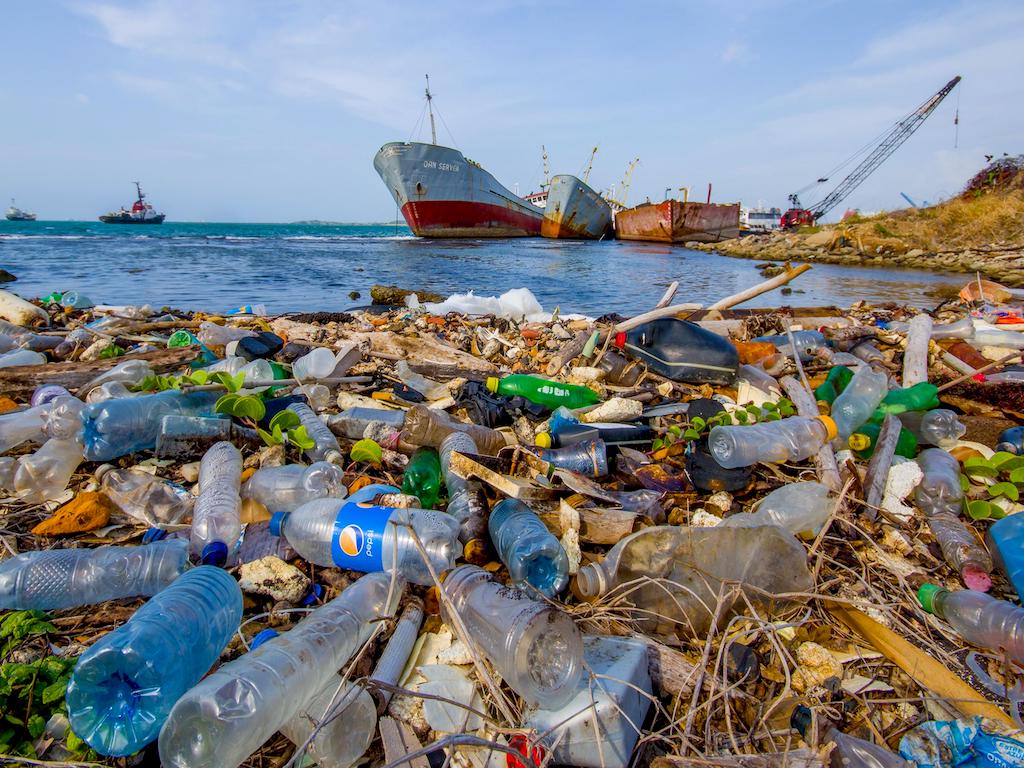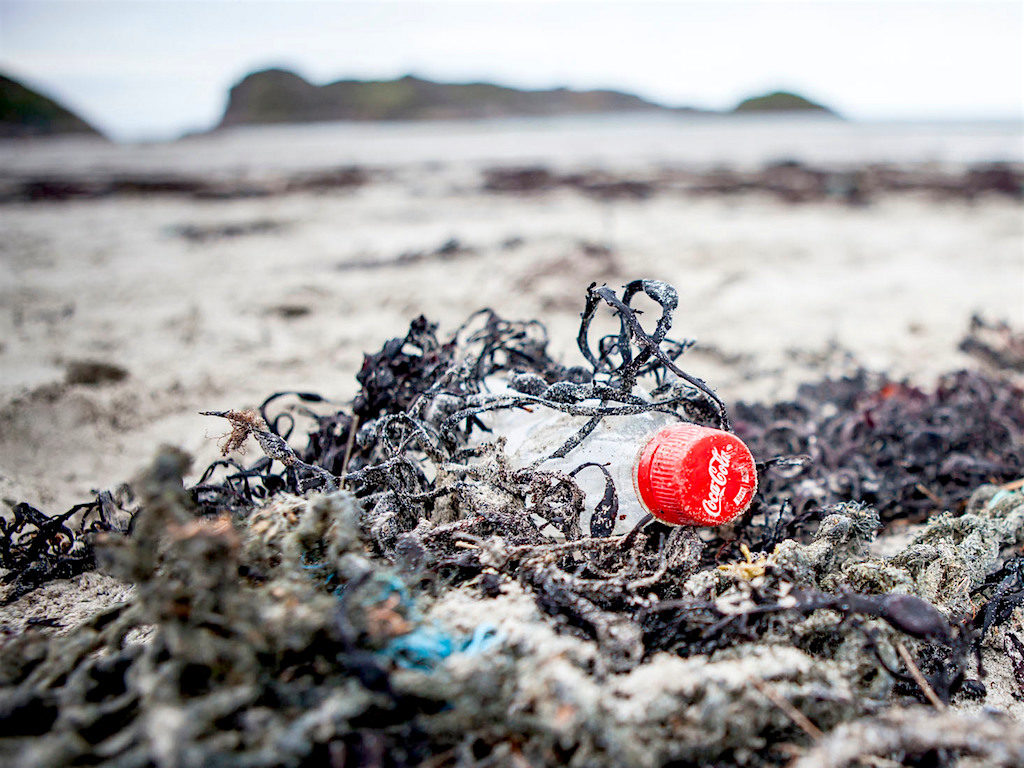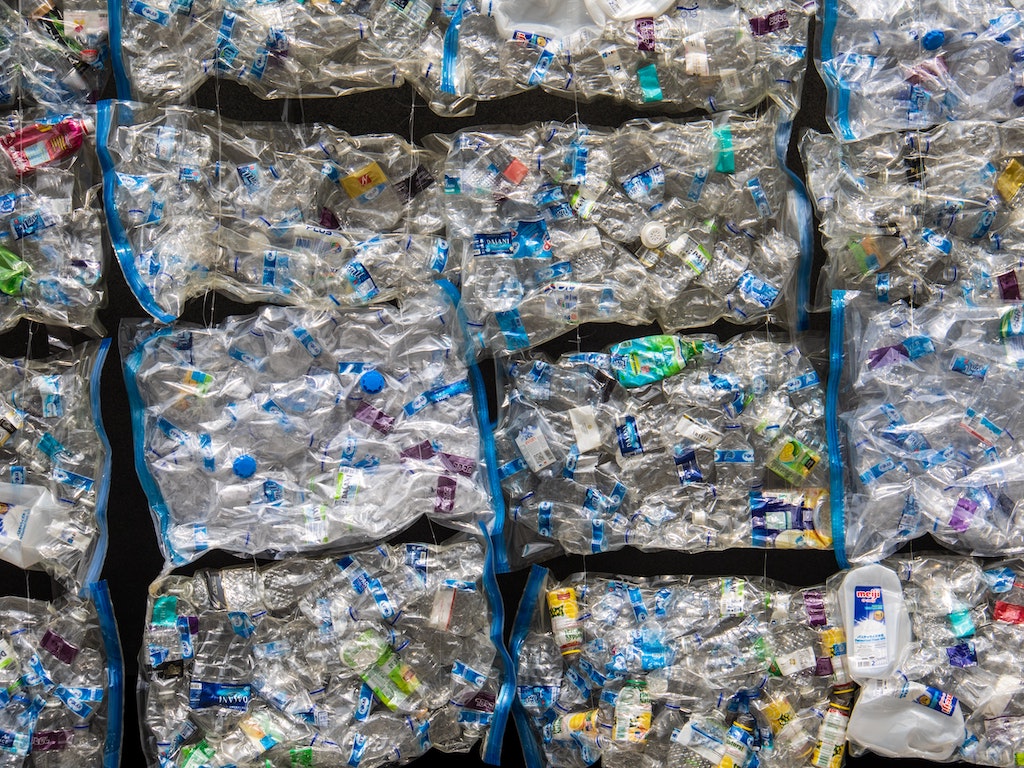Global Plastic Waste Treaty To Tackle Environmental Crisis Is Picking Up Speed
4 Mins Read
After years of campaigning and awareness-raising from anti-plastic activists, a global treaty to regulate plastic pollution and waste management could finally be on the cards. Amid the current G7 talks in Cornwall, major packaging producers and charities are calling on the world’s richest democracies to take the lead on the issue, following more than 100 countries around the world pledging support for such a treaty earlier this year.
Currently, at least 100 countries around the world have said they would be willing to back a global treaty to tackle the deluge of plastic waste polluting our oceans and the environment. Talks are ongoing, but those involved in the initial discussions believe that as public pressure builds and industry buy-in grows, governments could soon reach an agreement.
“This is a concrete problem that asks for a concrete solution and a global agreement will provide that,” said Hugo-Maria Schally of the European Commission, as quoted in National Geographic.
Now, calls have grown for the G7 countries to show leadership in making a global plastic treaty a reality, given their sizable influence over other nations, their own disproportionate contributions to plastic pollution and their public-facing pledges to tackle the climate crisis.
The leaders, who are meeting in-person in Cornwall this week, have issued a statement that they are committed to conserving land, oceans and protecting the planet from biodiversity loss and the devastating consequences that will flow from the continued destruction of nature. But an open letter is pushing for more focus on plastics.

“With the G7 summit meeting in June, now is the time to put a global treaty on plastics on the agenda,” said the open letter, which was signed by activists and industry giants alike, including British environmentalist Chris Packham and CPG majors like Nestlé, Aldi and Co-op.
“More than 70 governments – including the UK – have already expressed their support for such a treaty. And with the members of the G7 credited with leading the way to secure the Paris climate agreement, they are primed to champion a similar treaty tackling the scourge of plastic pollution.”
For years, scientists have said that tackling plastics will be key to not only protect animals, wildlife and nature, but is a critical part of solving global heating, with production at the helm of dirty oil and gas giants. To date, nearly three-quarters of all plastic produced is single-use, and production keeps climbing and is predicted to triple current levels by 2050.
Even if the world manages to slash plastic production by 80%, we’re still left with 710 million tonnes of plastic waste to tackle, say scientists.
These statistics offer a glimmer of how vital a global framework is to solving the enormous plastic waste problem at hand. For proponents of a global plastic waste treaty, though such agreements often drag on for long periods of time, there’s simply no other way than to treat the issue internationally.
“We need to find a way to look at plastic with a global lens,” Christina Dixon, an oceans specialist at the Environmental Investigation Agency told National Geographic. “We have a material that is polluting throughout its lifecycle and across borders. No one country is able to address the challenge by itself.”

The growing support from packaging and food industries themselves – businesses that are a major source of the problem – is another sign that such a treaty is picking up speed.
Not only have conglomerates like Nestlé signed up, the International Council of Chemical Associations (ICCA), a lobbying group of the global chemicals industry is now reportedly on board for the treaty too. Chemicals giants can be seen as the “true source” of the problem, with a recent study revealing that just 20 firms, many of them petrochemical companies, are responsible for manufacturing over half of the world’s throwaway plastic.
“We have evolved our position as the situation has evolved,” said ICCA member American Chemistry Council (ACC) executive Stewart Harris. “Now we do believe a global instrument is needed to help us achieve the elimination of waste in the environment and help companies achieve voluntary commitments.”
One big part of the business change is the consumer push. Public opinion over the importance of plastic pollution has grown significantly in recent years, with the subject even taking over late-night television stories like John Oliver’s Last Week Tonight show and polls consistently showing that consumers – particularly younger Gen Zs – are demanding far more action on the part of corporations.
A recent global survey found that more than 8 in 10 consumers now expect businesses to help solve global climate and social justice issues. The same poll also revealed that since the pandemic, shoppers have been holding brands and businesses to a higher standard and are more actively changing their own consumption habits to tread a little lighter on the planet.
Lead image courtesy of Unsplash.




